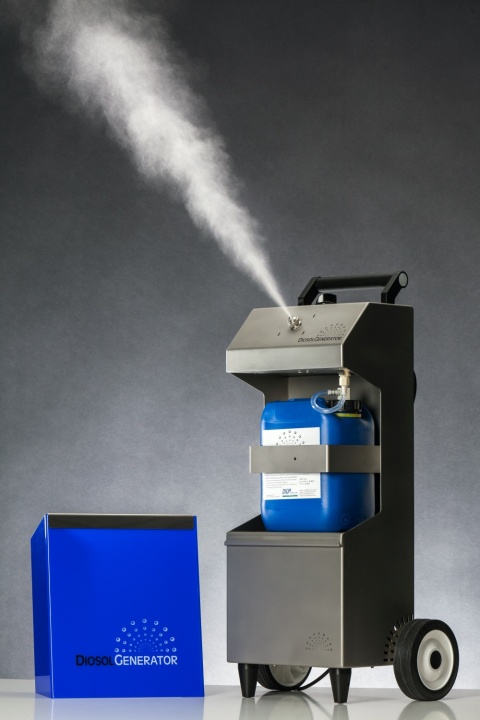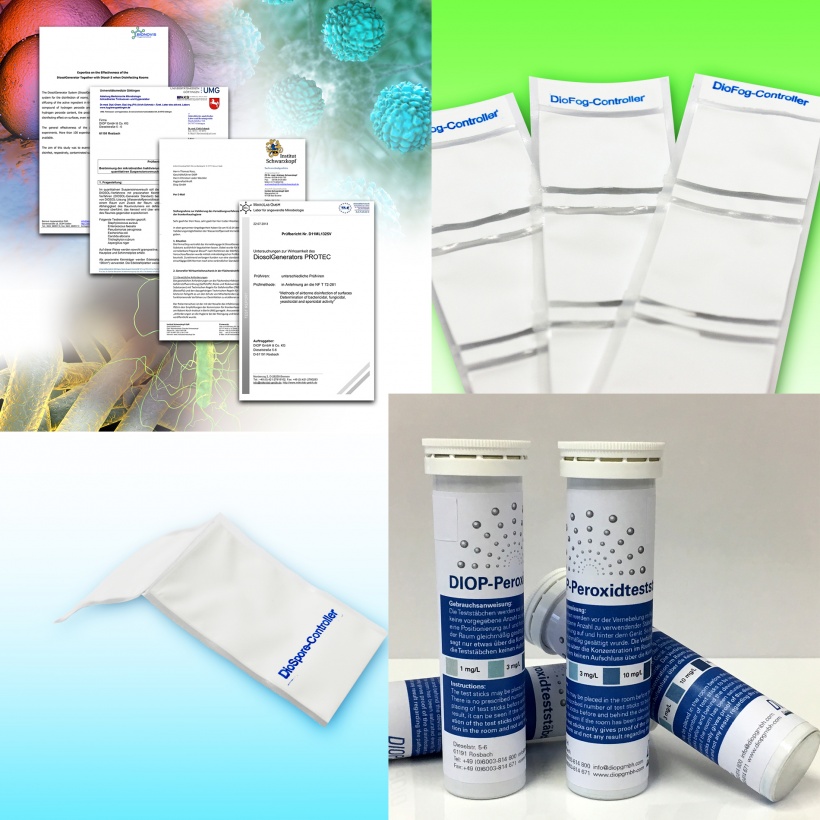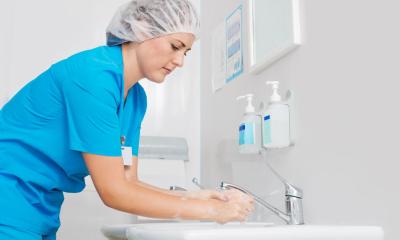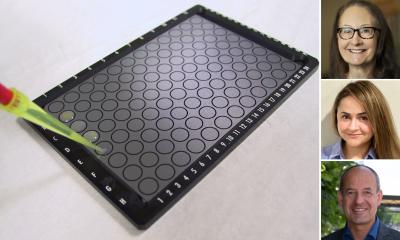Article • Disinfection
Going for high-performance hospital hygiene
Room decontamination using hydrogen peroxide (H2O2) has proved to be a powerful solution for complete surface and final disinfection as well as outbreak management in modern hospital hygiene.

Most final disinfections in hospitals are carried out using the scrub and wipe method, the specialist disinfection company Diop GmbH and Co. KG explains. ‘However,’ the firm adds, ‘this essential disinfecting measure entails dangerous risks, such as unnecessary gaps in surface disinfection (up to 70%), incorrect chemical dosages, human errors due to time pressure and lack of validation possibilities. Who seriously wants to take a contamination risk of at least 30%? ‘Inadequate final decontaminations can lead to losses in disinfection quality (contaminated surfaces + equipment), high personnel costs (e.g. by repetition of disinfection processes) as well as to an increasing number of infections, such as Methicillin-resistant Staphylococcus aureus (MRSA), Clostridium difficile-associated diarrhea (CDAD) etc. This places heavy financial burdens for economically weak hospitals.’
Validation and difficult, expensive cleaning and disinfection
‘Mechanical and automated disinfection methods can be reliably validated, such as the hydrogen peroxide-based room disinfection,’ Diop confirms. ‘In recent years, the so-called cold nebulisation, aerosolised hydrogen peroxide (aHP), or aerosol disinfection has emerged from these H2O2 procedures as being the most practical, user-friendly and most cost-effective disinfection method for final disinfections and outbreak situations in over 20 application areas. These include leading pharmaceutical manufacturers, federal institutes in the field of animal health, research centres, hospitals and food production.
‘Especially in highly contaminated patient rooms, toilets, laundry services and other hospital environments, the residual risks and gaps of the disinfecting work carried out by humans can be mechanically secured by way of validation. These serve as microbiological proof of the disinfection performance,’ Diop assures.

Recommendations
For the simple, safe and fast implementation of a conclusive validation, closed germ carriers (e.g. DioFog-Controller or DioSpore-Controller) are recommended. These special bio-indicators virtually exclude the risk of recontamination by humans and the environment because they have no handling problems, transport complications or storage risks. Depending on requirements, bio-indicators for either bacterial activity (incubated with the reference germ Enterococcus faecium or Staphylococcus aureus) or sporicidal disinfection (inoculated with Geobacillus stearothermophilus) can be used. ‘The validation itself is quite simple and accompanied by chemical indicators which prove the visible completeness of the disinfection process by automatic discoloration,’ Diop points out.
What disinfection results can be achieved?
‘Extremely difficult disinfecting processes, e.g. Acinetobacter baumannii, multi-resistant pathogens in general, norovirus outbreak or Clostridium difficile spores cannot be managed manually. In order to get these germs, viruses and spores inactivated and under control (microbiologically and financially), the H2O2 nebulisation technology demonstrates its impressive performance at manageable costs and investments. ‘H2O2 can cover the complete microbiological spectrum of activity (bacteria, fungi, yeasts, viruses and spores). For this purpose, approximately 4 ml per m³ of a disinfectant (for example, Diosol) tested according to EN standards are applied via an aerosol generator (e.g. DiosolGenerator) covering also hard-to-reach areas, such as shafts, ducts and air-conditioning systems. ‘Neither expensive training nor a time-intensive additional training is mandatory for the application of the H2O2 nebulisation method,’ Diop concludes. ‘Serious providers offer users in hospital hygiene a 2-3-hour expert training.’
05.03.2018





